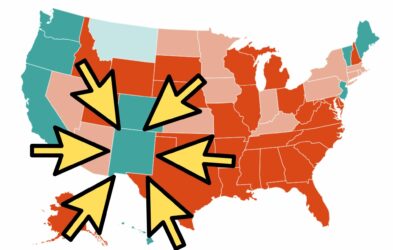This is a report from last Friday’s Maine House Committee Hearing on LD 1270, An Act Regarding Patient Self-Directed Care at End-of-Life by our long-time supporter, Valerie Lovelace. Val is the executive director of the nonprofit It’s My Death, which she founded to honor a promise to her sister Dee, dying of cancer, “to teach others how to be with dying, how to speak and listen to one another the way we had learned to speak and listen, and how to go on even when afraid.” She is an inter-faith minister, ordained by calling, studying and practicing in the traditions of her elders and teachers, who are Native American, Christian, and Buddhist. She is a hospice volunteer, artist, and the parent of three adult children. She is also a homeopathic practitioner and a Reiki Master, retired from the U.S. Navy, and a trained EMT. She lives in Maine.
*
Maine’s Motto is “Dirigo” or “I Direct” or “I Lead” and its tagline “The Way Life Should Be.” I’m proud of how hard my legislators work to ensure our laws are fair, straightforward, and seek to ensure as much freedom as possible. It’s a balancing act, for sure. What I love about the process is that at the end of the day, when a piece of legislation is enacted, it’s been hammered over to produce the best and safest possible piece of legislation.
Attending the First Hearing for LD 1270
Maine’s LD 1270, An Act Regarding Patient Self-Directed Care at End-of-Life, enjoyed its first public hearing on Friday, May 15, 2015, in Augusta before the Joint Standing Committee for Health and Human Services. The bill, sponsored by Senator Roger Katz and co-sponsored by nine others, is closely modeled on Vermont’s Act 39, Patient Choice and Control at End of Life.
I was excited to go to the hearing for a number of reasons.
- Foremost, I am committed to the needs of dying people and believe our dying is the most intimate event we will ever experience – our final act of living. As such, I hold it sacred to the individual.
- Secondly, it was my first time to the State House and first time being an actual participant in the legislative process as a concerned citizen.
- Finally, the bonus for me is that it was my birthday.
Legal, Professional, and Emotional Testimonies
It was a rare gift, indeed, to hear testimony after testimony regarding the need for a safe, legal end-of-life prescription process in Maine. Senator Katz spoke eloquently about the bill and what it offers, what it safeguards, and how it addresses concerns generally voiced in opposition. He was followed by a number of co-sponsors who also testified, some with profoundly personal stories of loss. Following that testimony, citizens had three minutes each to speak for, against, or neither-for-or-against the bill.
Supporters came forward with both professional and deeply moving personal stories, demonstrating a clear understanding of the bill. Voices in support, voices in opposition, voices offering neither for-or-against critiques: all heard, all noted, and all to be taken into working session.
I spoke briefly and submitted written testimony. My feeling is that the personal stories and experiences of all who came to support LD1270 sent a clear, unified message to our legislators: “Dirigo.” The way life (and the end of life) should be: self-directed.
Next Steps for Maine’s Death with Dignity Bill
I’m awestruck by the magnitude of the task that lay ahead for this committee, who will enter working session for the bill on May 22, 2015. They will read mountains of testimony, research key points they want to understand better, dig into the legislative workings of the bill, challenge whether safeguards are reasonable, whether choice is reasonable, and whether, in the grand scheme of our living and dying, it makes good sense to embrace this end-of-life option for Maine.
I trust the process. Each of these legislators, I believe, will do their best to comprehend the bill, learn about end-of-life prescriptions and how LD1270 proposes to make that a safe process for competent, terminally ill adults who want to choose an end-of-life prescription to use as their death becomes more imminent.
We here in Maine took a good first step.
Image by Andrew Lachance.

No comments.